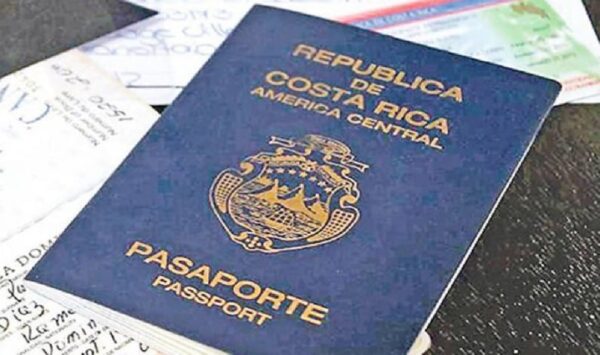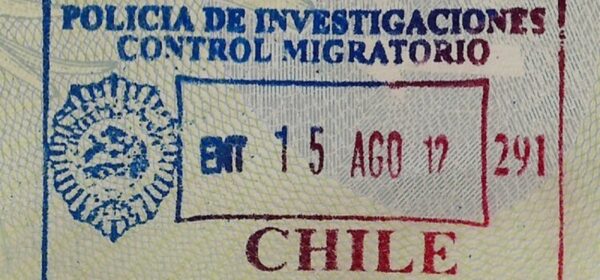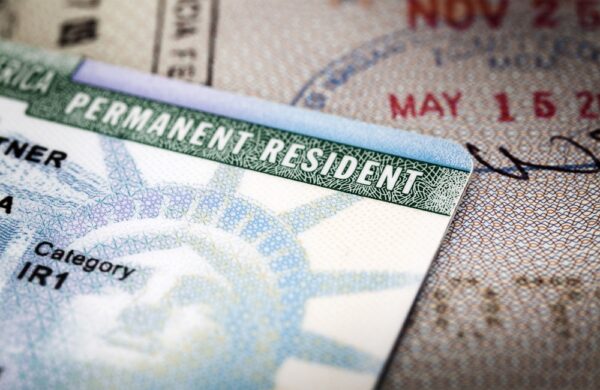If you've ever dreamed of calling Costa Rica home, understanding how to get permanent residency in Costa Rica is your key to making it happen. It is a country with beautiful natural scenery, an inviting social culture, and a good standard of life. This is one of the appealing tropical states that draw in expats from all over the globe. To get permanent residency an applicant would have to go through the necessary steps, such as selecting the right residency category: for instance, being a retiree, a dependent, or an investor and meeting the financial and legal requirements. It may look complicated but it can easily be done with the right preparation. Would you like to know how to go through the Costa Rica Residency process for a successful transition? Read on to get more information to bring your dreams into reality.
Basics of Costa Rica Permanent Residency
First of all, it's important to know that “visas” and “estancias” do not grant permanent residence. These are particular types of stays that are usually one year long and can be extended for another year. The Digital Nomad Visa is one example of this; it is offered to people who make USD$48,000 for families or USD$36,000 for singles every year. This visa can be renewed for a further year after it is first issued. You can be eligible for Costa Rica permanent residency if:
- You're a blood relation of a Costa Rican (sibling, child, or parent)
- You have spent a minimum of three years in Costa Rica under a temporary residency permit.
Ways of Obtaining Costa Rica Permanent Residency

If you’re wondering how to get permanent residency in Costa Rica, here are the two popular ways:
1. Through Costa Rican Family
The goal of this kind of residency in Costa Rica was to facilitate family reunions between foreign residents and Costa Ricans. Applicants for this Costa Rican residency include:
- Relatives of Costa Rican Citizen: The spouse, kids, parents, and unmarried siblings should all be aware of the implications of this immigration application. As long as the courts accept cohabiting couples, they are eligible to apply.
- Families of foreign nationals who are lawfully residing in the nation. Parents, children, and spouses should all understand the process. Cohabiting spouses can apply as long as they are legally recognized.
- Applicants must have a valid tourist visa in order to apply for this residency. Petitions submitted with an expired visa will not be accepted.
2. Through Temporary Residency
This is the most common way of obtaining permanent residency in Costa Rica. The purpose of the temporary residence permit is to allow people who meet certain requirements to remain in Costa Rica for a certain time. With temporary residency, you can spend up to two years in Costa Rica. You can get to know people, enjoy the local way of life, and look into possible long-term housing possibilities during this period. You are qualified for a permanent residency permit after obtaining a temporary one for at least three years. With this status, you have more stability and can work for a Costa Rican company without requiring additional permits. There are several ways of getting temporary residency.
Inversionista Residency
The minimum investment required for the investor (inversionista) visa is $150,000, and this can be invested in equities or securities, real estate, national interest initiatives, operating businesses, or sustainable tourism facilities. Children under 25 and those with disabilities who are older than 25 may be included on an application. This visa provides a two-year temporary resident permit that can be extended for a further two years. You are eligible to apply for unrestricted permanent residence in the nation after three years of continuing to dwell there as an “inversionista” or lawful resident.
Rentista Residency
Someone who makes their living from real estate or investments is known as a rentier. Applicants must earn at least US$2,500 per month for a minimum of two years, along with their family group, in order to be considered as rentier (or “rentista”) residents. Alternatively, the applicant could prove that they have invested US$60,000 in a Costa Rican bank. You must provide proof of “rentista” residency income for these options, such as a formal letter from a foreign bank, financial institution, certified public accountant, or other relevant organization attesting to your ability to receive that revenue on a monthly basis for the next two years. The required letter must be issued by the local bank when investing in a Costa Rican bank.
Pensionado Visa
You must have a lifelong pension of at least $1,000 per month and be able to provide proof of it to be eligible for a pensionado (retired) visa. A pension recipient can be of any age, but this type of residence is obviously most prevalent among older people.
Digital Nomad Visa
With the opening of the Digital Nomad Visa in 2022, the Costa Rican government acknowledged the country's potential as a center for remote work and a revenue stream for the travel and tourist sector. Applicants for the Costa Rican Digital Nomad Visa must show that they make at least US$3,000 per month. With the possibility of a one-year extension, the remote worker visa allows them to lawfully remain and work in Costa Rica for a maximum of one year. Remote workers need to prove they have been in Costa Rica for at least 180 days in order to renew this visa. To be eligible, applicants must be self-employed or work for a foreign company and have a monthly income sufficient to sustain themselves and their families in Costa Rica.
Required Documents for Costa Rica Permanent Residency Application
Understanding how to get permanent residency in Costa Rica involves knowing the right documents for application. When applying for the residence permit, a foreign national needs:
- Application form
- Birth certificate
- Passport photos
- Temporary residence permit
- Certificate of police clearance from home country
- Valid passport
- Filiation form
- Marriage certificate
- Proof of registration with Costa Rica embassy/consulate
- Proof of sufficient financial means
- Proof of employment contract
- Proof of paid application fee
- Proof of clean criminal record
- Proof of investment
- Proof of relationship with Costa Rican citizen
How to Apply for Permanent Residency in Costa Rica
Applying for permanent residence can sometimes feel like navigating a maze. If you’re wondering how to get permanent residency in Costa Rica, follow these three steps:
1. Know the right category for your situation
2. Gather the necessary documents
3. Ensure all documents are translated and apostilled by an official translator.
4. Submit your application to the Costa Rican immigration department. The key to your journey is submitting a carefully completed application and then waiting for the outcome. Though timeframes can vary greatly, remaining aware and prepared at each stage can help to demystify the process.
Processing Time and Fees
It can take six months to one year to process a Costa Rica permanent residency. This depends on many factors, such as your situation and the completeness of documents. The application fee costs $50, but the expenses for the whole process can range from $500 to $1500.
Benefits of Obtaining Residency in Costa Rica
1. Accessibility: Costa Rica is connected to the rest of Central America via four international airports. The main airport, Juan Santamaría International, provides flights to and from the US and Europe. Additionally, there is a vast network of municipal airports in Costa Rica, several of which offer private jet services. It takes roughly three hours to drive from coast to coast on well-maintained highways.
2. Education: Costa Rica normally offers free education, and all dependent children of permanent residents are required by law to attend school. The nation boasts one of the highest rates of literacy in the whole region. Some international schools use different international curricula.
3. Healthcare: Once you've obtained residency, you must continue to pay for national health insurance and retirement benefits. Every Costa Rican resident is covered by the Caja Costarricense de Seguro Social (CCSS), the country's social security and health insurance program.
Difference between a Costa Rica Temporary Residence Permit and a Permanent Residence Permit
1. A temporary residence permit is effective for one to two years and renewable, but a permanent residency permit is indefinite.
2. A temporary residency permit does not, by default, allow the holder permission to work; you must also get a Costa Rican work permit. However, you can work with your permanent residence permit.
3. The holder of a permanent residency visa has similar rights as a Costa Rican citizen, including the right to work.
4. If you have blood ties to a Costa Rican, you can apply for a permanent residency permit right away. If not, you have three years to apply for a temporary residence visa before going for permanent residence.
Major Challenges While Applying for Costa Rica Permanent Residency
In their quest for permanent residency, applicants frequently encounter challenges, such as navigating intricate legal requirements and having to wait for up to 12 months because the General Immigration Office is overflowing with applications. Uncertainty can have a big emotional impact, as can the financial weight of application expenses. It is not uncommon to encounter difficulties, such as requests for further paperwork or even application rejection. The key to overcoming these obstacles is readiness, perseverance, and occasionally legal aid.
Is Permanent Residency and Citizenship the Same?
Although citizenship and permanent residency both provide the security of long-term residence in Costa Rica, they differ significantly. Permanent residency permits foreign nationals to live, work, and study in Costa Rica indefinitely. Still, citizens have extra privileges such as the right to vote, obtain a Costa Rican passport, and hold public office in Costa Rica. One of the most significant differences is that citizenship offers a sense of permanency and belonging, and it is frequently regarded as the ultimate step in the immigration process.
Conclusion
Obtaining permanent residency in Costa Rica requires a strategic approach. By understanding the eligibility criteria, choosing the right visa category, and navigating the application process, foreigners can successfully achieve their goals. Follow the steps above to learn how to get permanent residency in Costa Rica and enjoy its tropical lifestyle.
















